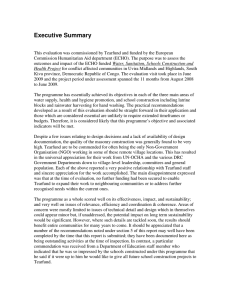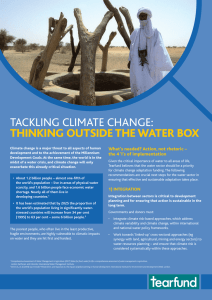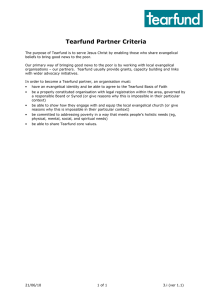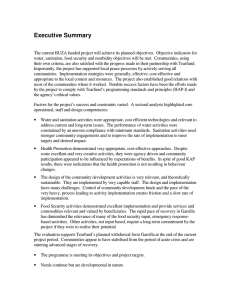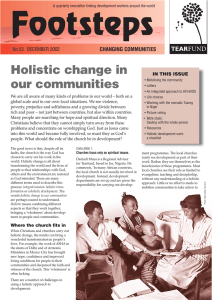Tearfund’s Policy Analysis of the High Level Meeting on Food... 26-27 January 2009
advertisement
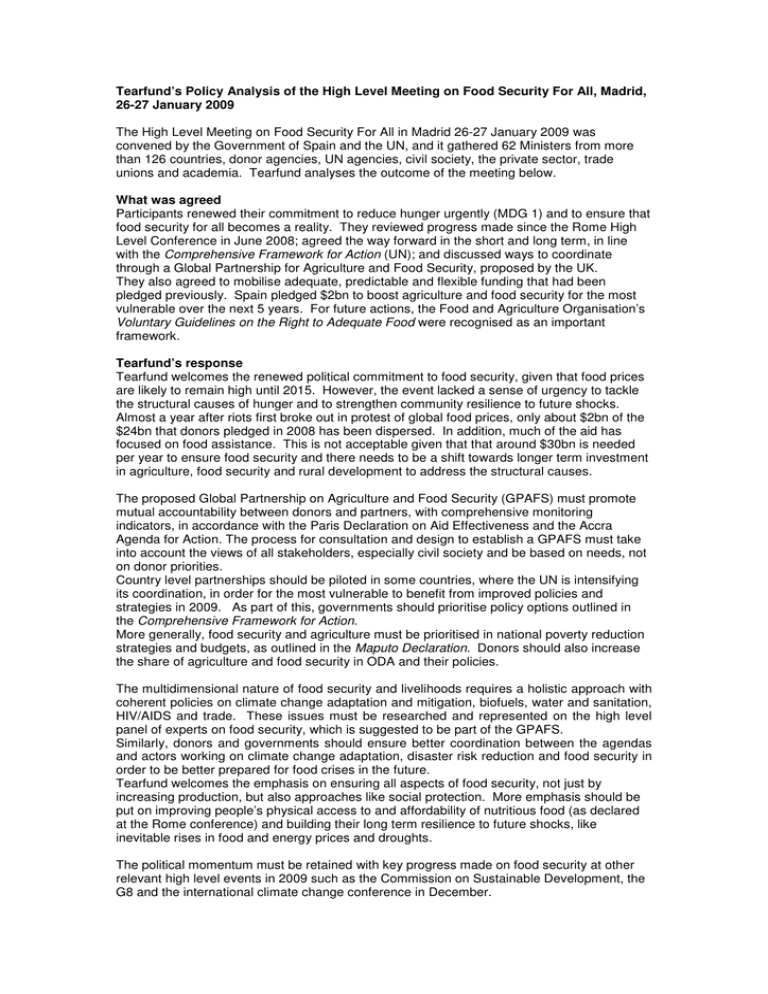
Tearfund’s Policy Analysis of the High Level Meeting on Food Security For All, Madrid, 26-27 January 2009 The High Level Meeting on Food Security For All in Madrid 26-27 January 2009 was convened by the Government of Spain and the UN, and it gathered 62 Ministers from more than 126 countries, donor agencies, UN agencies, civil society, the private sector, trade unions and academia. Tearfund analyses the outcome of the meeting below. What was agreed Participants renewed their commitment to reduce hunger urgently (MDG 1) and to ensure that food security for all becomes a reality. They reviewed progress made since the Rome High Level Conference in June 2008; agreed the way forward in the short and long term, in line with the Comprehensive Framework for Action (UN); and discussed ways to coordinate through a Global Partnership for Agriculture and Food Security, proposed by the UK. They also agreed to mobilise adequate, predictable and flexible funding that had been pledged previously. Spain pledged $2bn to boost agriculture and food security for the most vulnerable over the next 5 years. For future actions, the Food and Agriculture Organisation’s Voluntary Guidelines on the Right to Adequate Food were recognised as an important framework. Tearfund’s response Tearfund welcomes the renewed political commitment to food security, given that food prices are likely to remain high until 2015. However, the event lacked a sense of urgency to tackle the structural causes of hunger and to strengthen community resilience to future shocks. Almost a year after riots first broke out in protest of global food prices, only about $2bn of the $24bn that donors pledged in 2008 has been dispersed. In addition, much of the aid has focused on food assistance. This is not acceptable given that that around $30bn is needed per year to ensure food security and there needs to be a shift towards longer term investment in agriculture, food security and rural development to address the structural causes. The proposed Global Partnership on Agriculture and Food Security (GPAFS) must promote mutual accountability between donors and partners, with comprehensive monitoring indicators, in accordance with the Paris Declaration on Aid Effectiveness and the Accra Agenda for Action. The process for consultation and design to establish a GPAFS must take into account the views of all stakeholders, especially civil society and be based on needs, not on donor priorities. Country level partnerships should be piloted in some countries, where the UN is intensifying its coordination, in order for the most vulnerable to benefit from improved policies and strategies in 2009. As part of this, governments should prioritise policy options outlined in the Comprehensive Framework for Action. More generally, food security and agriculture must be prioritised in national poverty reduction strategies and budgets, as outlined in the Maputo Declaration. Donors should also increase the share of agriculture and food security in ODA and their policies. The multidimensional nature of food security and livelihoods requires a holistic approach with coherent policies on climate change adaptation and mitigation, biofuels, water and sanitation, HIV/AIDS and trade. These issues must be researched and represented on the high level panel of experts on food security, which is suggested to be part of the GPAFS. Similarly, donors and governments should ensure better coordination between the agendas and actors working on climate change adaptation, disaster risk reduction and food security in order to be better prepared for food crises in the future. Tearfund welcomes the emphasis on ensuring all aspects of food security, not just by increasing production, but also approaches like social protection. More emphasis should be put on improving people’s physical access to and affordability of nutritious food (as declared at the Rome conference) and building their long term resilience to future shocks, like inevitable rises in food and energy prices and droughts. The political momentum must be retained with key progress made on food security at other relevant high level events in 2009 such as the Commission on Sustainable Development, the G8 and the international climate change conference in December.
